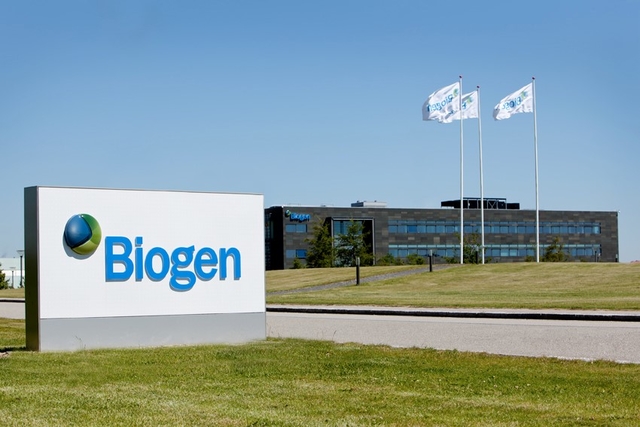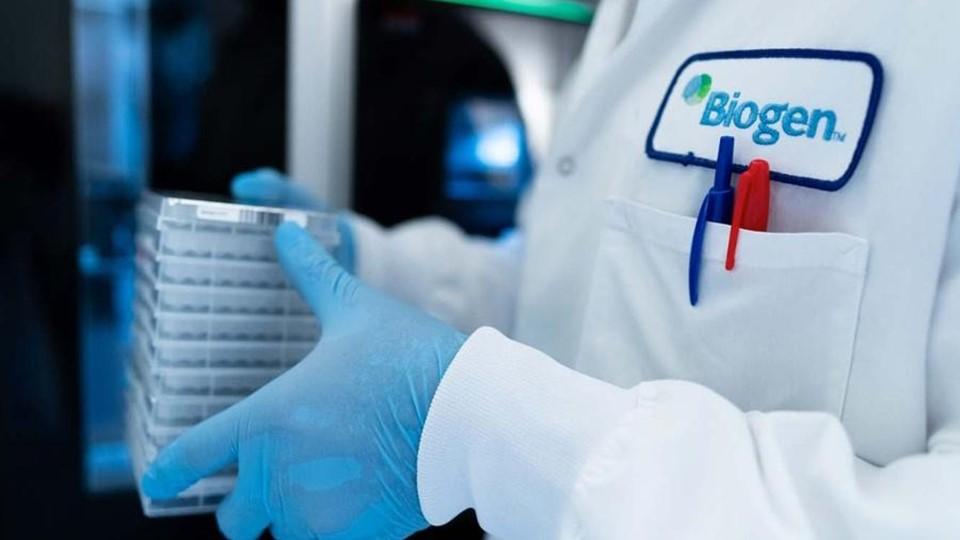Biogen bulks up pipeline with Sage drugs in $3bn deal

With the prospects for its Alzheimer’s drug aducanumab still up in the air, Biogen has moved to shore up its late-stage pipeline with a $3 billion licensing deal with Sage that adds drugs for depression and neurological disorders.
The licensing agreement gives Biogen rights to Sage’s zuranolone (SAGE-217) for psychiatric disorders including depression, and SAGE-324 for essential tremor and other neurological diseases, which both target the GABAA receptor pathway.
In return Sage gets $1.525 billion upfront – $875 million in cash and a $650 million equity investment – as well as potential milestones of $1.6 billion if both drugs meet their development and commercial targets.
The deal comes as both companies are facing a challenging period. Biogen has invested heavily in its Alzheimer’s candidate aducanumab, but an FDA advisory committee was unimpressed with the company’s rehashed data for the anti-amyloid drug and voted that it didn’t support efficacy.
The FDA may still approve the drug – its reviewer had called some elements of the data persuasive in a briefing document – but even if it does getting payers to stump up for a drug with shaky data could be a challenge, despite the lack of Alzheimer’s therapies.
Meanwhile, Biogen has suffered recent setbacks including the failures of multiple sclerosis candidate opicinumab and a gene therapy for spinal muscular atrophy (SMA) – at a time when its big selling SMA drug Spinraza (nusinersen) is facing increased competitive pressure.
At the same time, Sage has struggled to make headway with its only approved therapy – Zulresso (brexanolone) for postpartum depression (PPD), which has been held back by a cumbersome dosing schedule that requires a 60-hour inpatient infusion.
Zulresso was launched last year but sales in the recent third quarter were just $1.6 million, around the same level as the same period of 2019.
With zuranolone, Biogen gets shared US and exclusive ex-US rights (excluding Japan, Taiwan and South Korea) to a potential first-in-class, once-daily oral drug with a breakthrough designation from the FDA as a treatment for major depressive disorder (MDD).
It has positive results from two pivotal trials – a phase 2 trial in MDD and phase 3 study in PPD – although a second phase 3 PPD trial (MOUNTAIN) failed to meet its primary objective. Biogen and Sage say there will be data readouts from other phase 3 trials in MDD and PPD next year.
The partners are going after three indications for the drug, namely PPD, as a rapid response therapy for MDD, and “as needed” treatment of acute MDD, and down the line will also look at its potential in bipolar disorder and generalised anxiety disorder.
A key characteristic is a rapid onset of action, which could free patients from the need to take antidepressants chronically and “may enhance quality of life and patient adherence”, according to Biogen.
SAGE-324 meanwhile is in phase 2 for essential tremor, a neurological disorder that causes involuntary and rhythmic shaking, and is being explored for other indications like epilepsy and Parkinson’s disease. Biogen gets shared US rights to the drug under the deal, as well as ex-US rights.
Essential tremor is estimated to affect over six million patients in the US, while 17 million Americans have symptoms of depression every year, and those numbers have led analysts to predict potential blockbuster sales for both zuranolone and SAGE-324 if approved.
Shares in Sage dipped after the announcement, with Jefferies analyst Andrew Tsai suggesting that might be because of disappointment that Sage hadn’t held out for potentially more favourable deal terms if zuranolone hits the mark in trials due to read out in 2021.













